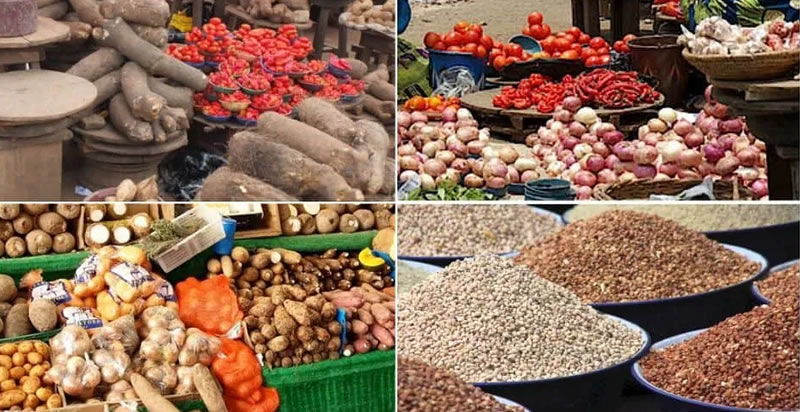About 31.5 million people, including 83,846 IDPs in 26 states and the FCT, are expected to be in crisis or worse between June and August 2024, a report, Cadre Harmonisé, has said.
The report also stated that 24.7 million people including 14,000 Internally Displaced Persons (IDPs) in 26 states and the Federal Capital Territory (FCT) will be in food crisis or worse between March and May 2024.
Cadre Harmonisé is a food and nutrition insecurity analysis by the Ministry of Agriculture and Food Security in collaboration with technical partners including the United Nations Food and Agriculture Organisation (FAO).
Analysiing the result further, it noted that about 1.1 million people in Adamawa State are expected to be in crisis or worse between June and August 2024, and about 2.1 million people in Borno are expected to be in crisis or worse between June and August this year, while 1.5 million people in Yobe are expected to be in crisis or worse between June and August this year.
Also, deteriorated food consumption situation was also observed among populations in the inaccessible areas and the IDPs in Adanawa, Borno, Sokoto, and Zamfara states.
It noted that the deteriorating food consumption results from a significant spike in food prices due to high production and transportation costs caused by the removal of fuel subsidies and its resultant impact on inflation and consumer price index rates on both food and basic non-food items.
The report noted that the high cost of transport, inflation rate, and the volatile dollar-naira exchange rate have negatively affected households’ income.
In the projected period (June to August 2024), poor microeconomic conditions and conflicts are expected to drive limited access to livelihood opportunities.
“The nutrition situation in Borno, Adamawa and Yobe (BAY) and northwest states of Katsina, Sokoto and Zamfara revealed the prevalence of malnutrition for Under-5 children to be in crisis in the current situation.
However, the report said key drivers of the crisis include conflict and insecurity, fuel scarcity, naira devaluation currency crisis, and rising inflation and Consumer Price Index (CPI) rates.
In his remarks, Country Representative of the FAO to Nigeria and ECOWAS, Mr Koffy Kouacou Dominique, said the FAO will continue to support the Cadre Harmonisé process, especially in terms of funding as well as technical support and capacity building, across the country.
Dominique, who was represented by the Deputy FAO Country Representative, Suleiman Abubakar, said the Cadre Harmonisé analysis produces the most reliable and widely acceptable data/results for humanitarian programming and food security.
Also, the Permanent Secretary, Ministry of Agriculture and Food Security, Mr Temitope Fashedemi, who was represented by the Director of Special duties, Adedayo Modupe, said the government has put machinery in place to address the challenges to food and nutrition insecurity.
Meanwhile, the Seme border command of the Nigeria Customs Service (NCS), Federal Operations Unit (FOU), Zone ‘A’, Ikeja has intercepted 880 bags of white beans, 584 bags of onions and 400 sacks of grains on the verge of being smuggled into Benin Republic.
The unit also intercepted export bound trucks loaded with 18 bags of dry pepper at Ajilete/Idiroko Road in Ogun State.

